Achieving a radiant, functional smile is within reach with dental implants in Worthington, Ohio, at Dr. Kevin Huelsman’s clinic. Our approach combines over two decades of dental expertise with the latest implant technology to offer solutions that are as durable as they are aesthetically pleasing. Whether you’re looking to replace a single tooth or require a full-mouth restoration, we are dedicated to providing personalized care that respects your time and oral health.
Take the first step towards transforming your smile and confidence; schedule your consultation for dental implants with Dr. Kevin and Dr. Connor Huelsman.
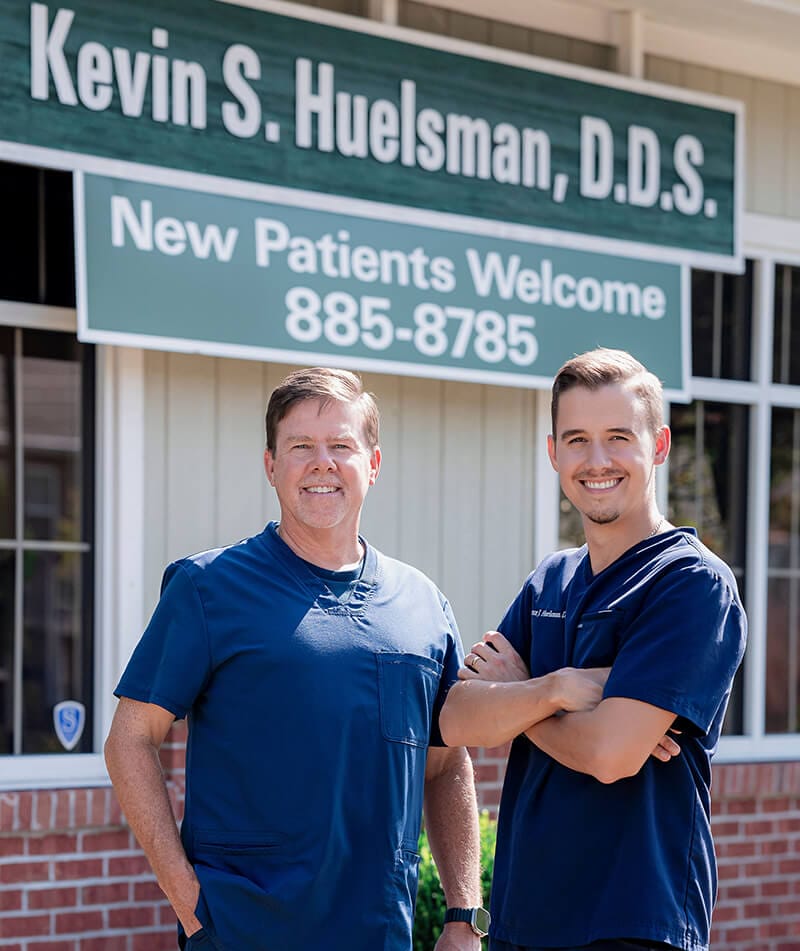
Choose Dr. Huelsman for Your Dental Implants in Worthington, OH
We offer dental implant services that are designed to provide a foundation for replacement teeth that look, feel, and function like natural teeth. For those in Worthington, Ohio, who have experienced tooth loss, we offer a chance to regain the ability to eat virtually anything and smile confidently, knowing that their teeth appear natural and that facial contours will be preserved.
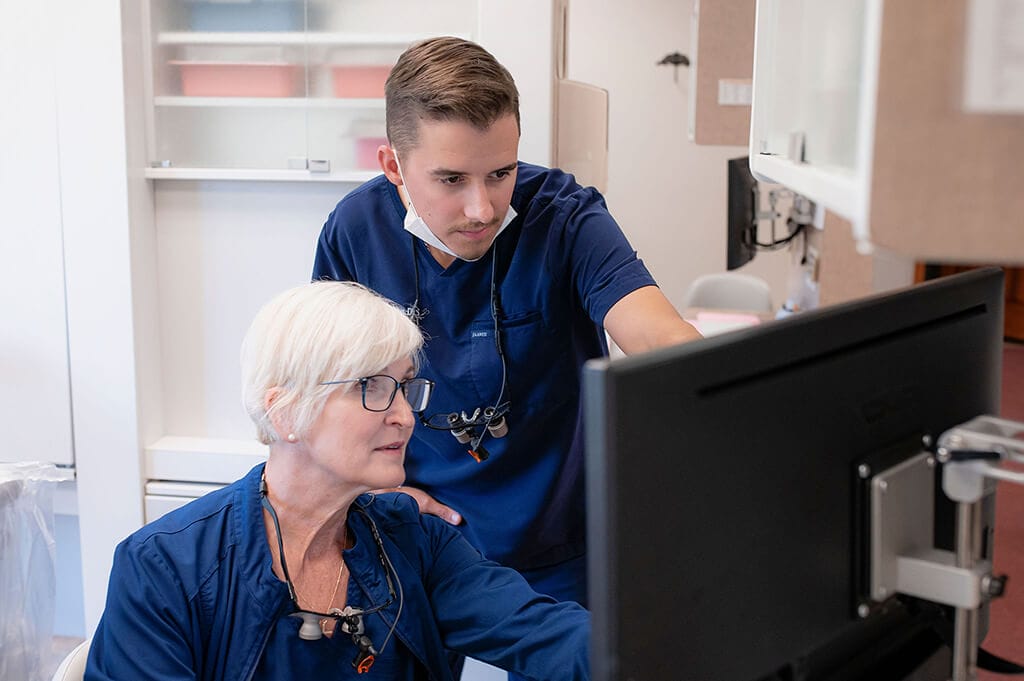
Comprehensive Dental Implant Solutions
Our dental implants are small titanium posts surgically placed into the jawbone for missing teeth. These metal anchors act as tooth root substitutes and are then allowed to fuse with the bone over time. Once healed, they serve as a sturdy foundation for artificial replacement teeth. This fusion to the jawbone helps maintain facial structure and prevent bone deterioration from missing teeth. For whatever you need, just one false tooth or multiple, dental implants are the go-to solutions.
Personalized Evaluation and Treatment Planning
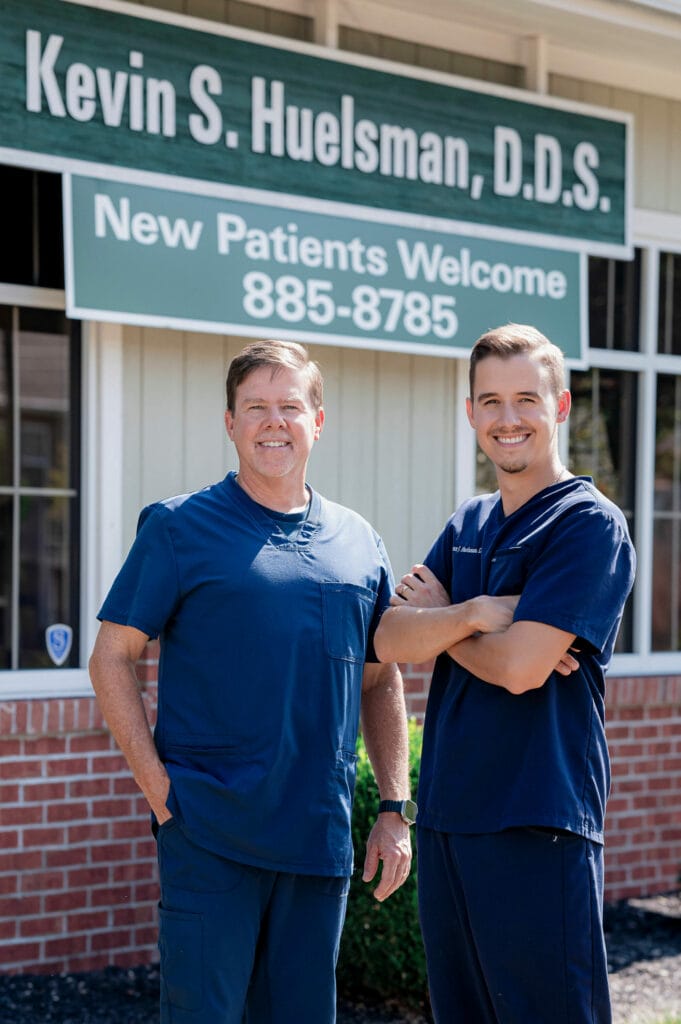
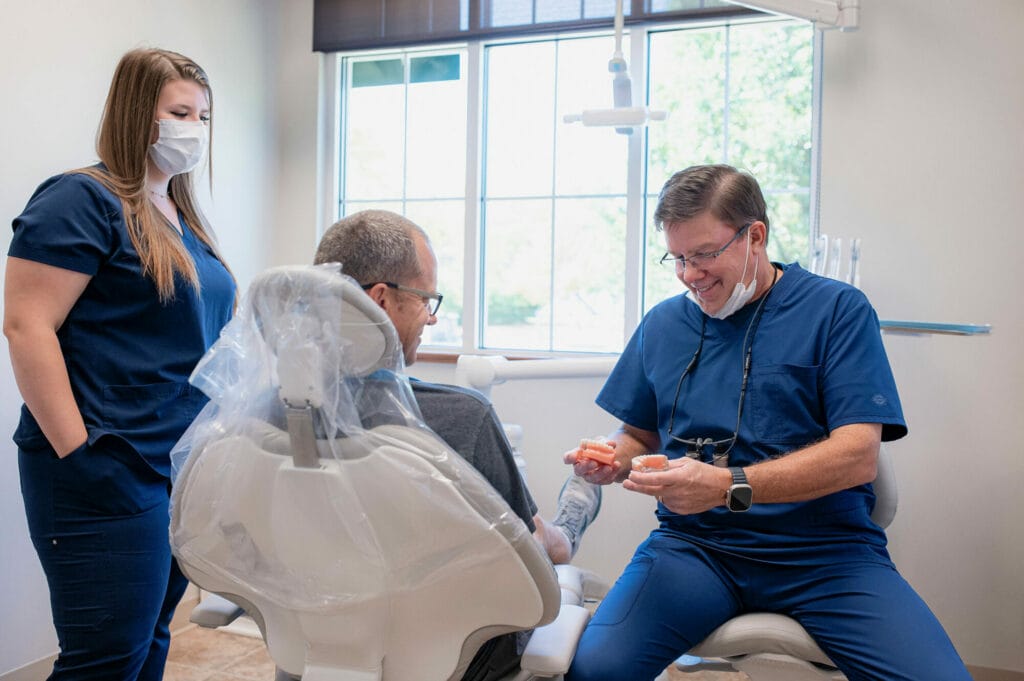
State-of-the-Art Implant Procedure
The process of fitting dental implants involves several steps.
- Initially, the implants are placed within your jawbone and given time to heal and integrate with the bone, which can take several months.
- During the healing period, you should be able to continue your daily life without interruption.
- After the implant has bonded with the jawbone, a healing collar is placed, and Dr. Huelsman will create your new, healthy teeth based on impressions taken.
This process ensures that your replacement teeth are customized to fit your mouth and match your natural teeth, providing a seamless and functional smile.
A Commitment to Patient Satisfaction
Our commitment to your overall oral health is reflected in the testimonials of our patients who have undergone the transformational experience of receiving dental implants. They report significantly improving their ability to eat, speak, and confidently enjoy life. With less movement and maintenance than traditional dentures, our dental implant solutions, from full, partial, and implant-supported dentures, are designed to offer a permanent solution to tooth loss.
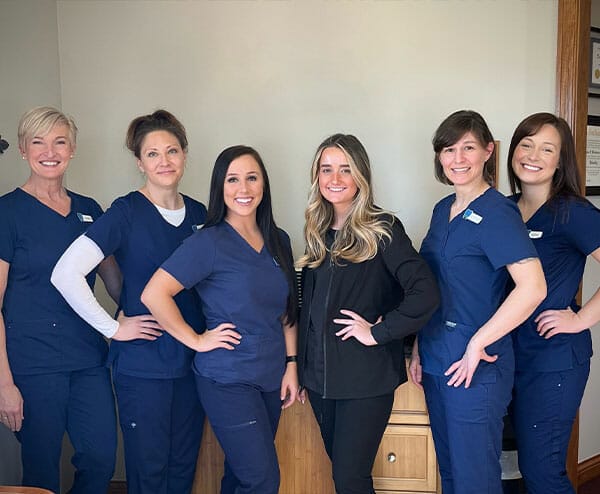
Secure Your Dental Health with Dr. Huelsman Now
With dental implants in Worthington, Ohio, you can reclaim the joys of eating your favorite foods,
speaking quickly, and smiling without reservation. Dr. Huelsman’s expertise and a legacy of compassionate care and advanced technology ensure that your path to a stronger, healthier smile is clear and attainable.
Contact us now at 614-350-6144 and choose dental implants in Worthington, Ohio, to take the definitive step towards a lasting, beautiful smile.
FAQs
What is the average cost of a dental implant in Ohio?
The cost of a dental implant in Ohio can vary widely depending on several factors, including the complexity of the procedure, the type of implant used, and the need for additional operations, such as bone grafting, which is a procedure that replenishes bone loss. On average, patients expect the cost of a single dental implant to range from $1,000 to $3,000, with the complete procedure of the implant and crown ranging from $2,000 to $5,000 per tooth.
What are the three types of dental implants?
- Endosteal Implants: These are the most common type placed directly into the jawbone, acting as an artificial root to hold a replacement tooth or bridge.
- Subperiosteal Implants: These implants rest on the jawbone but under the gum tissue. They are used for patients who do not have a healthy jawbone and do not want to undergo a bone augmentation procedure to rebuild it.
- Zygomatic Implants: The least common type, these are implanted into the cheekbone rather than the jawbone and are typically used when there is not enough jawbone for the endosteal implant.
How long do full mouth implants last?
Full-mouth dental implants are designed to be a long-lasting solution for tooth loss. With proper dental care and maintenance, they can last many years. On average, full mouth implants can last 15 to 20 years and often much longer. The longevity of dental implants can be influenced by factors such as oral hygiene, lifestyle choices, and regular dental check-ups. It’s crucial to follow your dentist’s care instructions and attend all follow-up appointments to ensure the longevity of your dental implants.
Can you eat with full-mouth dental implants?
Yes, you can eat with full-mouth dental implants. One of the primary benefits of full mouth implants is the ability to eat a wide range of foods without the restrictions that often come with traditional dentures. However, starting with softer foods is recommended and gradually reintroducing harder, chewy, or sticky foods as comfort and confidence with the implants increase.
WE LOVE OUR PATIENTS
We appreciate the opportunity to provide you with the best possible service and treat you like family and we’re proud of the reviews we receive from our patients!
CONTACT US
CONTACT US
